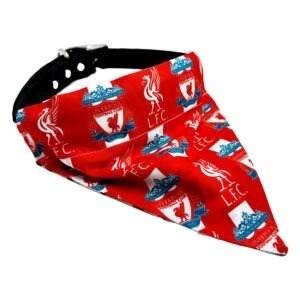The Greater Swiss Mountain Dog, affectionately known as “Swissies,” is a large, robust, and versatile breed originally bred for work on farms in Switzerland. They are one of the oldest Swiss breeds, known for their power, agility, and amiable character. They’re sociable, reliable, and protective, making them excellent family pets.
The breed’s size and history dictate their dietary and exercise needs, which are considerably significant compared to smaller, less active breeds. A well-balanced diet fuels their energy requirements and supports their overall health, while regular, purposeful exercise helps keep them physically fit and mentally stimulated. An understanding of these elements is essential to ensure the well-being and longevity of a Greater Swiss Mountain Dog.
Caring for a Swissie is not just about providing affection, but it also involves providing the right food, creating an exercise routine that suits their strength and stamina, and ensuring regular check-ups for early detection of any health issues. This guide provides detailed insights into the best dietary and exercise needs for your Greater Swiss Mountain Dog, ensuring they lead a healthy, happy, and fulfilled life.
Some of our latest products...
-
Dog Bandanas
Liverpool FC Dog Bandana
$ 13.19 – $ 16.12 USD Select options This product has multiple variants. The options may be chosen on the product page -
Dog Bandanas
Manchester City Dog Bandana
$ 13.19 – $ 16.12 USD Select options This product has multiple variants. The options may be chosen on the product page -
Dog Bandanas
Manchester United Dog Bandana
$ 13.19 – $ 16.12 USD Select options This product has multiple variants. The options may be chosen on the product page -
Dog Collars
Pittsburgh Steelers Dog Collar
$ 20.52 USD Select options This product has multiple variants. The options may be chosen on the product page
The subsequent sections offer an overview of the dietary needs, exercise requirements, the role of diet and exercise in the breed’s overall health, and some real-life experiences from other Swissie owners. With this knowledge, owners will be better equipped to take care of their beloved Swissies, ensuring they stay as healthy, active, and vibrant as they deserve to be.
Understanding the Dietary Needs of Greater Swiss Mountain Dogs
Providing your Greater Swiss Mountain Dog with an appropriate diet is crucial to ensure they lead a healthy and vibrant life. As a large and robust breed, Swissies have unique nutritional requirements that must be addressed to maintain their physical health, energy levels, and overall well-being.
Nutritional Requirements
High-quality proteins should be the foundation of your Swissie’s diet. Protein helps maintain muscle mass and supports cellular functions. Look for dog food that lists animal-based proteins like chicken, beef, or fish as the first ingredient. Aim to provide a diet comprised of approximately 18-25% protein for adults and 25-27% for growing puppies.
Healthy fats, particularly Omega-3 and Omega-6 fatty acids, are another crucial component of their diet. Fats provide energy, support brain development, keep the skin and coat healthy, and assist in nutrient absorption. The diet should be comprised of around 12-15% fat for adults and slightly higher for puppies due to their increased energy needs.
Carbohydrates provide energy and fiber for healthy digestion, but be cautious about the sources. Opt for complex carbohydrates from whole grains and vegetables, which provide sustained energy and are easier to digest.
Dietary Needs at Different Life Stages
- Puppies: Greater Swiss Mountain Dog puppies grow quickly and require a diet high in quality protein and fats to support their rapid growth and high energy levels. Puppies should be fed small, frequent meals throughout the day.
- Adults: As adults, their growth slows down, and they require a balanced diet rich in protein, healthy fats, and complex carbohydrates to maintain their muscle mass and energy levels. Feeding can be reduced to two meals a day.
- Seniors: Senior Swissies require a diet that supports bone health, maintains a healthy weight, and counteracts the effects of aging. They might need a lower-calorie diet with higher amounts of fiber and certain nutrients like glucosamine for joint health.
The Role of Supplements in the Diet
Depending on your Swissie’s health, your vet might recommend certain supplements. Glucosamine and chondroitin can support joint health, especially important for large breeds like Swissies prone to hip and elbow dysplasia. Fish oil supplements can benefit skin and coat health. Always consult with your vet before introducing any supplements.
Comparison of Diet Types: Raw vs Kibble vs Homemade
Each diet type has its pros and cons, and the choice largely depends on your dog’s needs, your lifestyle, and preferences. Kibble is convenient, and high-quality brands offer balanced nutrition. Raw diets mimic a dog’s natural diet but require careful planning to be nutritionally complete. Homemade diets offer control over ingredients but can be time-consuming to prepare. Whatever the diet, ensure it meets your Swissie’s nutritional needs.
Potential Health Risks Associated with Improper Diet
Improper diet can lead to obesity, a common issue in Swissies. Obesity puts undue strain on joints and can lead to conditions like diabetes, heart disease, and arthritis. Feeding a balanced, portion-controlled diet and avoiding excessive treats can help maintain a healthy weight.
Understanding your Greater Swiss Mountain Dog’s dietary needs and ensuring they receive a balanced, nutritious diet is the first step towards ensuring they live a healthy, fulfilling life. The next section discusses the crucial role of exercise in your Swissie’s life.
Exercise Needs for Greater Swiss Mountain Dogs
In addition to a balanced diet, Greater Swiss Mountain Dogs (Swissies) need regular exercise to maintain their physical health and mental well-being. Known for their strength and agility, they were bred to be working dogs and hence have a moderate to high energy level.
Understanding the Energy Levels of the Breed
Swissies are a vibrant and active breed. While they are not as hyperactive as some other breeds, they still require regular exercise to stay in shape. As puppies, they tend to have bursts of energy followed by periods of rest. As adults, they enjoy regular activities and have good stamina, but they are also content to lounge around at home with their family.
Ideal Exercise Routines for Greater Swiss Mountain Dogs
Daily exercise is a must for Swissies. This can be a long walk, a hike, or playtime in a large, secure yard. They also excel in dog sports such as agility, herding, and obedience trials. Remember to balance high-energy activities with periods of rest to avoid overtiring your dog.
Exercise routines should be adjusted based on your dog’s age and health. Puppies have a lot of energy but need to avoid strenuous activities that could harm their still-developing joints. Older dogs might not be as active but still benefit from regular, gentle exercise.
The Impact of Exercise on the Overall Health and Lifespan of the Breed
Regular exercise is key to a Swissie’s health. It keeps their heart healthy, maintains a strong musculoskeletal system, promotes good digestion, and helps prevent obesity. Moreover, it contributes to their mental well-being, reducing the risk of anxiety and destructive behaviors.
Potential Health Risks Associated with Lack of Exercise
Lack of exercise can lead to several health issues. Weight gain or obesity is a significant risk, leading to other complications like diabetes, heart disease, and joint problems. Inactivity can also result in boredom, leading to destructive behaviors.
Creating a balanced exercise regimen for your Swissie will greatly contribute to their overall health and happiness. However, it’s also important to remember that diet and exercise go hand in hand, so ensuring your Swissie has a balanced diet is just as crucial. In the next section, we’ll explore the experiences of real Greater Swiss Mountain Dog owners to give us a more practical understanding of managing diet and exercise.
Case Studies/Real-Life Experiences
Understanding the theory behind the diet and exercise needs of Greater Swiss Mountain Dogs (Swissies) is one thing, but to truly appreciate the importance of these elements, it can be useful to consider some real-life experiences. Here, we share a couple of stories from Swissie owners who have navigated these issues with their pets.
Case Study 1: Max’s Weight Management Journey
Max, a lovable Swissie, had struggled with weight since he was a puppy. His owner, Lisa, fed him high-quality dog food but noticed he was gaining weight rapidly. After consulting with her vet, Lisa discovered that she had been overfeeding Max. She began portion control and increased Max’s exercise routine. She also started including more playtime and walks into Max’s daily routine. The result was a gradual but healthy weight loss and a much more energetic and happier Max.
Case Study 2: Bella’s Love for Agility Training
Bella, another Swissie, displayed a high energy level since her puppy days. Her owner, Jack, realized that normal walks were not enough to keep Bella’s energy in check. After trying out a few dog sports, they discovered Bella’s love for agility training. Agility provided Bella a way to channel her energy and also served as a mental stimulant. It became an essential part of Bella’s routine, keeping her fit, happy, and more obedient.
Case Study 3: Bruno’s Transition to Seniorhood
Bruno’s story gives insight into diet and exercise needs for older Swissies. As Bruno aged, his owner, Rachel, noticed he was slowing down and gaining weight. Rachel consulted her vet and made dietary adjustments to lower-calorie food suitable for senior dogs. She also modified Bruno’s exercise regimen to include more gentle exercises like swimming to lessen the impact on Bruno’s aging joints.
These case studies underline the importance of tailoring diet and exercise to individual dogs’ needs and life stages. The right balance can lead to a healthier and happier life for your Greater Swiss Mountain Dog. As each dog is unique, it’s essential to monitor them closely and be willing to adapt and change routines as needed. Regular consultation with your vet is also vital in this journey.
Conclusion
Maintaining the overall health and happiness of a Greater Swiss Mountain Dog requires more than just love and companionship. As we’ve seen throughout this article, it requires a careful understanding of the breed’s specific dietary and exercise needs.
A balanced and tailored diet plays a fundamental role in the overall health of your Swissie. It ensures they receive the necessary nutrients for their growth, energy needs, and vital functions. Remember that the nutritional requirements will vary depending on their life stage, so a puppy’s diet will be significantly different from that of an adult or senior dog. Understanding these changes and adapting to them is key to ensuring your pet’s health.
Exercise, too, plays a critical role in a Swissie’s well-being. These are energetic dogs that need regular and structured physical activities to maintain a healthy weight and to satisfy their active nature. Exercise routines can range from daily walks to participation in dog sports like agility. These activities not only contribute to their physical health but also provide mental stimulation, keeping your Swissie alert and content.
However, diet and exercise are not one-size-fits-all. As we’ve learned from the case studies, each Swissie is unique and might need a personalized approach. Regular vet visits, ongoing observation, and a willingness to adapt are all crucial components in managing your pet’s diet and exercise routines effectively.
In conclusion, investing time and effort into understanding and implementing a proper diet and exercise routine for your Greater Swiss Mountain Dog is worth every moment. The result will be a happy, healthy pet, ready to fill your life with joy and companionship. So, embrace the journey with love, patience, and a commitment to your Swissie’s well-being. Your furry friend relies on you for their care, and the rewards of a well-cared-for pet are indeed priceless.
References
In the process of gathering information for this article, various reputable sources were consulted to provide the most accurate and up-to-date information about the diet and exercise needs of Greater Swiss Mountain Dogs. Some of these include:
- American Kennel Club. (2021). “Greater Swiss Mountain Dog.” Retrieved from https://www.akc.org/dog-breeds/greater-swiss-mountain-dog/
- PetMD. (2021). “Greater Swiss Mountain Dogs: Diet, Exercise, and Health.” Retrieved from https://www.petmd.com/dog/breeds/greater-swiss-mountain-dogs-diet-exercise-health
- Royal Canin. (2021). “Understanding the dietary needs of large breed dogs.” Retrieved from https://www.royalcanin.com/us/dogs/health-and-nutrition/diet-needs-large-breed-dogs
- WagWalking. (2021). “Best exercises for Greater Swiss Mountain Dogs.” Retrieved from https://wagwalking.com/activity/activities-for-greater-swiss-mountain-dogs
Please note that while these resources provide a wealth of knowledge, they should not replace regular visits to a veterinarian. Only a vet can provide the most accurate and personalized advice for your Greater Swiss Mountain Dog’s diet and exercise needs based on their health, age, and lifestyle.
Frequently Asked Questions
What is the recommended daily amount of food for a Greater Swiss Mountain Dog?
The recommended daily amount of food can vary depending on the dog’s age, size, metabolism, and activity level. Generally, an adult Greater Swiss Mountain Dog might eat between 4 and 5 cups of high-quality dry dog food per day, divided into two meals. Always consult your vet to determine the right portion sizes for your particular dog.
What are some suitable exercises for Greater Swiss Mountain Dogs?
Greater Swiss Mountain Dogs, being working dogs, enjoy tasks that engage both their minds and bodies. Activities like walking, hiking, pulling activities (like cart-pulling), and obedience or agility training can all be good forms of exercise. They also enjoy playtime with their families.
Are Greater Swiss Mountain Dogs prone to any specific health issues related to diet or lack of exercise?
Like many larger breeds, Greater Swiss Mountain Dogs are prone to certain conditions such as hip and elbow dysplasia, bloating, and obesity. A balanced diet and regular exercise can help manage these risks, but it’s also crucial to have regular vet check-ups to detect any potential issues early.
Can I feed my Greater Swiss Mountain Dog a homemade diet?
Yes, it’s possible to feed your dog a homemade diet, but it’s critical to ensure it’s balanced and meets all their nutritional needs. It’s best to consult a vet or a pet nutrition expert when planning a homemade diet to make sure your dog is getting the right nutrients.
How often should I exercise my Greater Swiss Mountain Dog?
As active dogs, Greater Swiss Mountain Dogs require daily exercise to keep them healthy and happy. A minimum of an hour of exercise per day is recommended, but this can be divided into multiple smaller sessions. Exercise can include walks, playtime, and other physical activities like those mentioned above.





